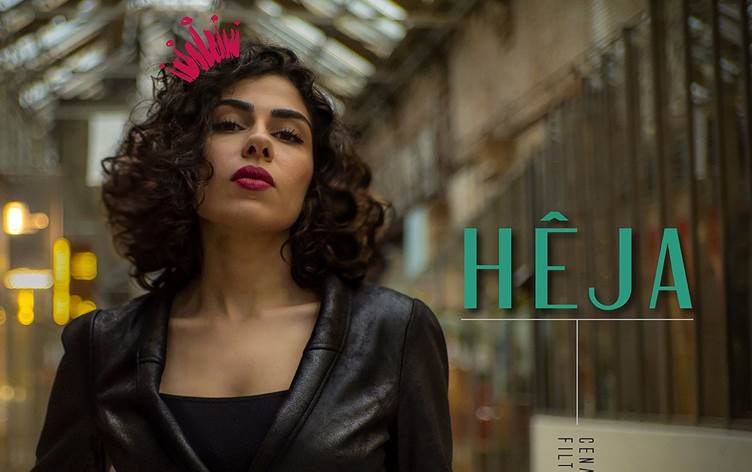ERBIL, Kurdistan Region – A Kurdish multidisciplinary artist who fled Turkish state prosecution for terror related charges is set to release her debut EP – and says other creative projects based on her life experiences are in the pipeline.
Heja Turk, 32, is a native of Mardin, southeastern Turkey. Stranen Nushshti (Unwashed Songs), her three-song EP that melds Kurdish music with modern folk-pop and folk rock, will be released online.
Her songs center on the oppression of women and the Kurdish condition.
“One of the songs sheds light on the life of a woman who works round the clock in a day, yet enjoys no rights,” Heja explains. “The other song is about the life of a lone woman. I composed the lyrics and melody of the song myself. The third song is about the loneliness of the Kurdish nation.”
Though music has been a longtime passion for Heja, her family were apprehensive about her pursuit of a career as a singer, “so after I graduated from university, I gave up on music and singing and decided to pursue higher education.”
Heja still dabbled in recording songs, but her attention turned to the pursuit of postgraduate studies in literature. She says she was accepted onto a Master’s program in Comparative Literature at New York’s illustrious Columbia University – but her study plans were cut short when she was detained by Turkish authorities.
She was first detained in January 2016, accused of sheltering a woman allegedly affiliated with the Kurdistan Workers Party (PKK), an armed group who have fought the Turkish state in a decades-long battle for increased Kurdish rights in the country.
“They accused the woman of masterminding an explosion in Istanbul,” Heja told Rudaw. “State suspicion towards us grew after they knew that I was a granddaughter of Ahmet Turk.”
Her grandfather, a veteran politician and advocate for Kurdish rights, has faced imprisonment by Turkish authorities multiple times over the course of his career. Elected mayor of Mardin in 2014, he was dismissed from office by Turkish authorities and detained on terror charges for three months in 2016. Re-elected mayor of the town in 2019, he was once again dismissed on accusations of support for terror, namely the PKK.
Heja served nine months in prison before being released on the grounds of insufficient evidence for continued detention.
Her nine-month prison stint did not blunt her creative edge; instead, she learned how to play the guitar, and wrote songs.
Her release from prison pushed her to take a career in music more seriously, encouraging her to record songs “in a professional way”.
After her release, she took on her first role as an actress. Filmed in Istanbul in February 2018, Mome tells the story of brutality against Kurds in Turkey’s southeast and its repercussions on Kurds in far-flung Istanbul.
The charges came back to haunt her in an April 2018 court hearing, when she was sentenced to five years in prison.
She accuses Turkish authorities of fabricating evidence in her case, with the wider aim of tarnishing the image of Kurdish political politicians and activists. Turkish media latched on to the campaign, she said, calling for her to be jailed “of up to 19 years” instead of five.
Heja says she fled the country before she could be arrested again, heading for Germany.
Heja offers little explanation on how she came to Europe, but says explanation of her journey will come through a film she is working on in collaboration with the Hamburg Media School.
While Germany has provided her with a sanctuary from persecution and space to pursue her creative interests, she says she still feels isolated and hopes to connect with other diaspora Kurds in the country.
“The most unpleasant thing to me in Germany is that I have no musician friends. I am desperately in need of Kurdish artists and cinematographers in Germany to assist and work with me.”
Despite her family renown, Heja wants to be known by her own merit.
“Yes, I am a granddaughter of Ahmet Turk. But I do not want to be known on the basis of my family. Ahmet Turk is one person and I, another,” Heja says. “What I say and do reflect my understandings and opinion, only.”

